Introduction
Who is Ratan Tata?
Born on December 28, 1937, Ratan Tata is an Indian businessman and philanthropist. He is renowned for both his humanitarian endeavours and for leading the Tata Group, one of the biggest and most prestigious commercial enterprises in India. He joined the Tata Group in 1962 after completing his schooling in India and the United States, and he rose through the company’s ranks to become CEO in 1991.
The business significantly expanded and grew under his direction, both domestically and internationally. Ratan Tata is well known as a visionary leader who is deeply passionate about philanthropy and corporate social responsibility. He stepped down from his position as Tata Group chairman in 2012, although he is still a significant figure in Indian industry and society.
Overview of his life and career
In Mumbai, India, Ratan Tata was born into a well-known Parsi family. He completed his early schooling in India before moving to the United States to attend Cornell University to study architecture and structural engineering. His career as a factory floor employee at Tata Steel began in 1962 after he returned to India and joined the Tata Group. He held a number of positions inside the organisation throughout the years, including managing director of Tata Industries and chairman of Tata Sons, the Tata Group’s holding company.
Under his direction, the Tata Group saw substantial growth and expansion, with fruitful mergers and acquisitions, business diversification, and entry into new markets. Additionally, Ratan Tata is also known for his charitable endeavours, particularly in the fields of rural development, healthcare, and education. He has won several accolades and prizes for his work in business, philanthropy, and society. In 2012, Ratan Tata stepped down from his position as chairman of the Tata Group, but he is still active in charity and humanitarian concerns.
Childhood and Early Life
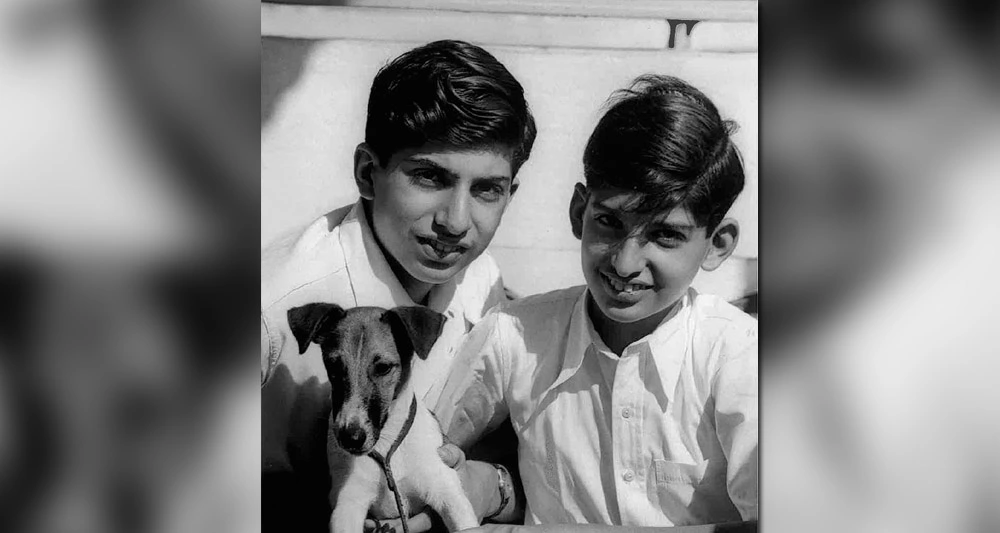
Family background
In India, Ratan Tata is descended from a well-known Parsi family. His father, Naval Tata, was a well-known businessman and the adopted child of Sir Ratanji Tata, one of the Tata Group’s original founders. Jamsetji Tata, the great-grandfather of Ratan Tata, established the Tata Group, which has grown to be one of India’s biggest and most prestigious commercial giants. The Tata family has a long history of charitable giving and community involvement, with a focus on rural development, healthcare, and education. Throughout his career, Ratan Tata’s dedication to philanthropy and corporate social responsibility has been influenced by this legacy.
Education and upbringing
At the Campion School in Mumbai, Ratan Tata acquired his early education while living in India. He then continued on to Cornell University in the US to study architecture, where he graduated in 1962 with a Bachelor of Science. He studied advanced management courses at Harvard University and the Wharton School of the University of Pennsylvania after completing his undergraduate education.
Given his familial background, Ratan Tata was raised in a wealthy atmosphere and was exposed to business and philanthropy at a young age. Hard effort, ethics, and social responsibility were principles ingrained in him during his upbringing; these traits would subsequently influence his career and leadership style.
Joining the Tata Group
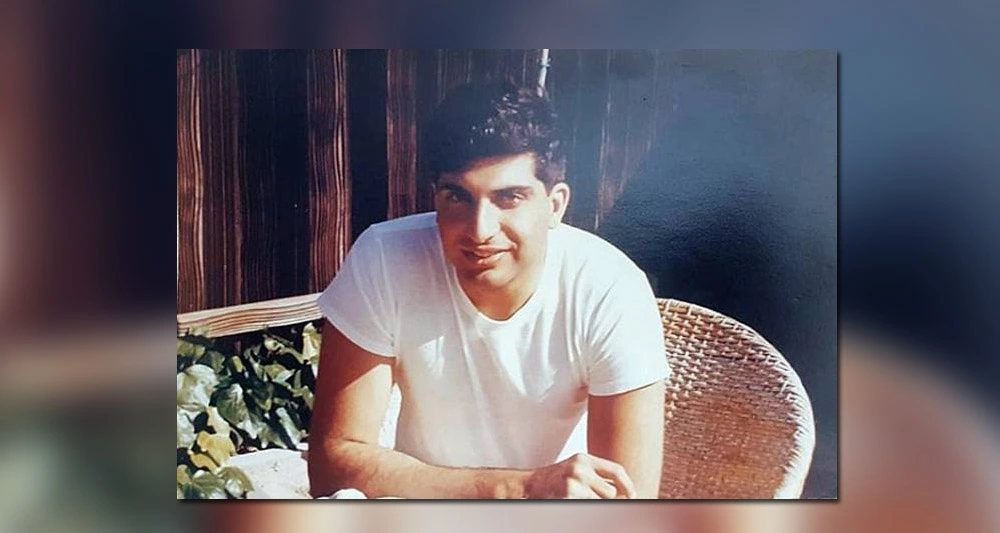
Entry into the family business
Despite his family history, Ratan Tata did not automatically join the family business. He received an offer to work for IBM in New York after completing his education in the United States. But Navajbai Tata, his grandmother, convinced him to come back to India and work for the Tata Group. Ratan Tata started his career at Tata Steel working on the factory floor after joining the business in 1962.
Over the years, he worked his way up the corporate ladder, holding a number of posts, including managing director of Tata Industries and chairman of Tata Sons. The Tata Group expanded and diversified its commercial operations both domestically and globally under the direction of Ratan Tata. His leadership was characterised by mergers and acquisitions that were successful as well as a dedication to philanthropy and CSR.
Early years at the Tata Group
He began his career working in the blast furnace division at Tata Steel in Jamshedpur. Later, he transitioned to the management cadre and served in a variety of roles at Tata Steel and additional Tata Group enterprises. He was chosen to be the director-in-charge of the Tata Group company, National Radio and Electronics Company (NELCO), which produced radios and other consumer electronics, in 1971.
Ratan Tata oversaw NELCO’s turnaround from a losing enterprise to a profitable one. After this accomplishment, he was appointed chairman of Tata Industries in 1981, where he oversaw the expansion of the economic activities of the Tata Group into new sectors like software, autos, and telecom. Early experiences with the Tata Group showed Ratan Tata’s eagerness to take on new challenges and his capacity to oversee successful turnarounds.
Leadership at Tata
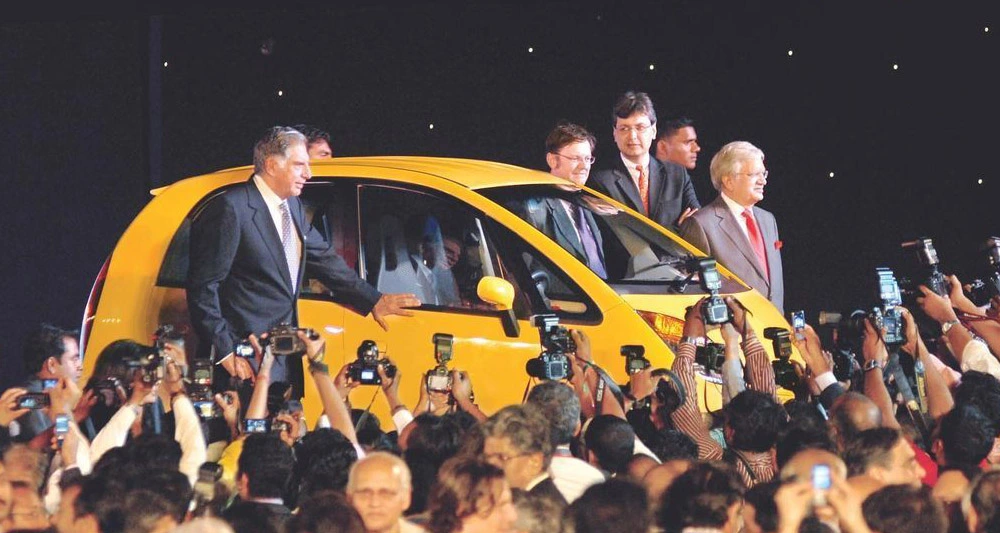
Becoming the CEO
Ratan Tata’s management of the Tata Group reached a climax with his selection as CEO in 1991. He managed the expansion and diversification of the Tata Group’s business operations both domestically and internationally in his capacity as CEO. One of his significant achievements was ‘Tata Motors’ 2008 purchase of the renowned British luxury automobile companies Jaguar and Land Rover. This purchase aided Tata Motors in gaining ground in the international automobile industry.
Ratan Tata was also instrumental in the development of the Tata Nano, a stylish and economical vehicle made specifically for the Indian market. Under his direction, the Tata Group maintained its dedication to philanthropy and CSR by making large investments in rural development, healthcare, and education. Ratan Tata’s vision, strategic thinking, and dedication to perfection made him a standout leader at the Tata Group.
Overcoming challenges as a leader
Throughout his time at the Tata Group, Ratan Tata had many difficulties in his role as a leader. The worldwide economic downturn of 2008, which had a considerable impact on the companies of the Tata Group, especially in the automobile industry, was one of the biggest challenges. In response to this difficulty, Ratan Tata made audacious decisions to restructure the business, cut expenses, and prioritise innovation and quality. Due of its ability to withstand the storm and come out stronger, the Tata Group.
A contentious legal dispute with his half-brother Noel Tata over the inheritance of their father’s estate presented Ratan Tata with another difficulty. Through mediation, Ratan Tata was able to settle this dispute without a courtroom showdown that may have tarnished the Tata Group’s reputation.
Ratan Tata received criticism for a number of his business choices, including the purchase of Corus Steel and the introduction of the Tata Nano. But in response to this criticism, he accepted responsibility for his choices, admitted his errors, and made the required corrections.
Shaping the company’s future
Ratan Tata’s direction of the Tata Group was distinguished by his strategic vision and dedication to growth and innovation. He made it a top priority to expand the company’s economic activities beyond its traditional strongholds, such steel and cars. He urged the businesses in the Tata Group to look into potential new markets in industries like information technology, telecommunications, and hospitality.
The Tata Group invested heavily in research and development throughout Ratan Tata’s tenure as CEO, with the goal of creating new goods and technologies that would keep the business one step ahead of its rivals. This strategy produced a number of noteworthy inventions, including the Tata Nano, a car created for the Indian market that was both economical and environmentally benign.
Ratan Tata’s dedication to philanthropy and corporate social responsibility was a significant component of his leadership. He thought that companies had a duty to give back to the people they served, and as a result, the Tata Group made large investments in rural development, healthcare, and education under his direction.
The Tata Group’s Expansion Under Ratan Tata
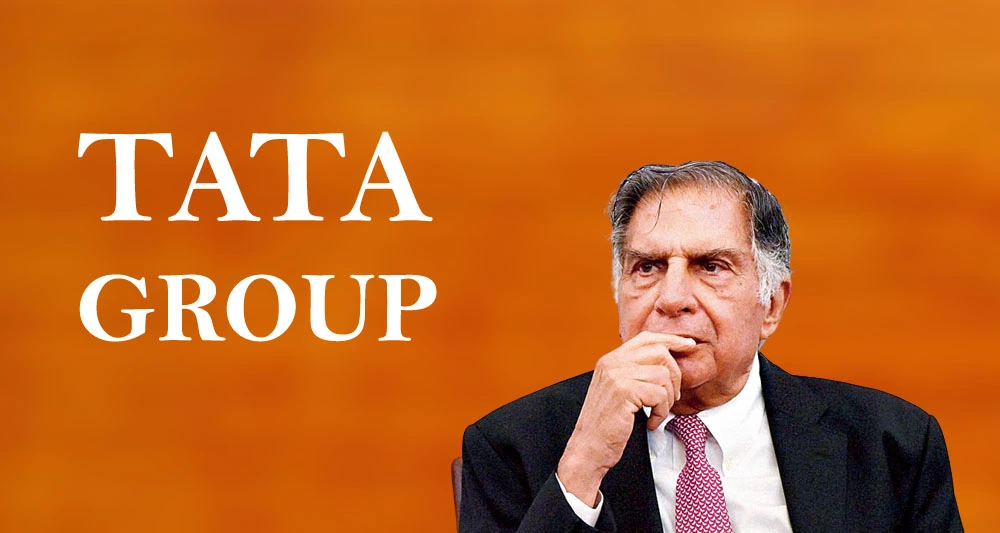
Acquisitions and mergers
The Tata Group launched a massive development strategy under Ratan Tata’s direction, which included acquisitions and mergers to diversify its business interests and broaden its global reach. In 2008, Tata Motors made one of the most important purchases when it bought the renowned British luxury automobile brands Jaguar and Land Rover. Tata Motors was able to broaden its product line and gain traction in the international automotive sector thanks to this acquisition.
The global steel business Corus Group was another notable acquisition made by Tata Steel in 2007. With this acquisition, Tata Steel rose to become the fifth-largest steel producer in the world and significantly increased its footprint in Europe.
To diversify its economic interests, the Tata Group also formed a number of joint ventures and partnerships. To provide a larger range of services to its clients, Tata Consultancy Services (TCS), the group’s IT services division, entered into collaborations with major global technology firms like Microsoft and IBM.
Ratan Tata’s strategic plan for the Tata Group had a crucial component that focused on growth through mergers and acquisitions. These actions aided the company in diversifying its lines of business, enlarging its global reach, and maintaining an edge over rivals.
Growth into new markets
The Tata Group grew into new markets both domestically and globally while Ratan Tata served as its CEO. The Tata Group expanded its business operations in India by launching Tata Teleservices and the Star Bazaar chain of hypermarkets in the retail and telecom sectors, respectively. With the purchase of Taj Hotels, Resorts, and Palaces, the group also increased its position in the hospitality sector.
In markets including the US, Europe, and Africa, the Tata Group made large international investments. For instance, Tata Motors built a factory in the United Kingdom to make Jaguar and Land Rover automobiles. While Tata Global Beverages built its tea business in Africa, Tata Chemicals purchased a soda ash company in the US.
Ratan Tata’s goal of making the Tata Group a major participant on the international stage in several industries motivated him to concentrate on expanding into new markets. With the aid of this strategy, the Tata Group was able to diversify its sources of income, lessen its reliance on specific markets, and take advantage of fresh prospects in developing nations.
Diversification of the business
Diversifying the Tata Group’s commercial interests was one of Ratan Tata’s top focuses while serving as its CEO. To lessen the group’s reliance on any one industry or market, he understood the value of growing into other markets and sectors.
The Tata Group expanded into new markets under his direction, including information technology, telecommunications, retail, and hospitality. The Tata Group was able to expand globally and tap into new revenue streams because to this diversification approach.
For instance, Ratan Tata led the group’s IT services division, Tata Consultancy Services (TCS), to become one of the largest IT services firms in the world. In order to compete internationally in the IT sector, TCS expanded its services outside of India.
Similar to this, Tata Teleservices entered the telecom sector and introduced mobile services under the Tata Docomo brand in India. The Tata Group was able to enter a sector with rapid growth and take advantage of new market prospects thanks to its diversification approach.
Philanthropy and Social Work
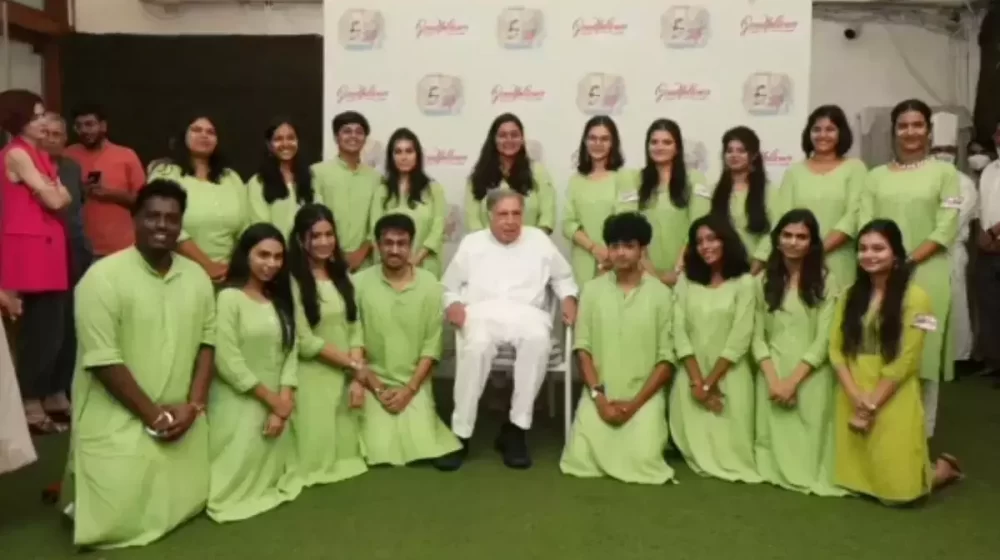
Personal involvement in philanthropy
Throughout his life, Ratan Tata has made a major contribution to philanthropy. He has participated in numerous charity endeavours and generously donated to a number of charities, especially those that support healthcare, education, and poverty alleviation.
The Tata Trusts’ founding in 1892 was one of his noteworthy efforts. These trusts are some of the biggest and oldest charitable organisations in India, with a goal of raising the standard of living for all Indians. Ratan Tata led a number of key efforts in fields like education, healthcare, and rural development during his more than 20 years as chairman of the Tata Trusts.
Ratan Tata has contributed individually to numerous philanthropic initiatives in addition to his work with the Tata Trusts. For instance, in 2010 he gave $50 million to the Harvard Business School to create the Tata Trusts Endowment Fund, which funds study and research in India and other developing nations.
Ratan Tata’s dedication to philanthropy is a testament to his conviction that helping others and giving back to society are both crucial. His personal involvement in a number of philanthropic projects has encouraged others to practise philanthropy and make a difference in the world.
Contributions to social causes
Ratan Tata has dedicated his life to humanitarian issues and has made use of his position as a powerful economic figure to advance societal progress. He has made a lot of contributions in these areas and has been outspoken about topics like healthcare, education, and eradicating poverty.
Launching the Tata Nano, a compact and inexpensive vehicle made with the intention of offering affordable transportation to the public in India, is one of his noteworthy contributions to social concerns. Millions of people’s access to transportation and mobility were enhanced thanks to the Tata Nano, which revolutionised the Indian auto sector.
In order to increase access to education in India, Ratan Tata has also been a significant supporter of numerous programs. For instance, he played a key role in the creation of India’s premier institution for social sciences education, the Tata Institute of Social Sciences. Additionally, he has backed programs like the Akanksha Foundation, which offers education to kids from low-income households, to help impoverished youngsters in India.
Ratan Tata has contributed to a number of healthcare programs in addition to his efforts in education. For instance, he played a significant role in the development of India’s premier cancer treatment facility, the Tata Memorial Hospital. He has also participated in programs to increase access to healthcare for poor areas in India.
Awards and Honors
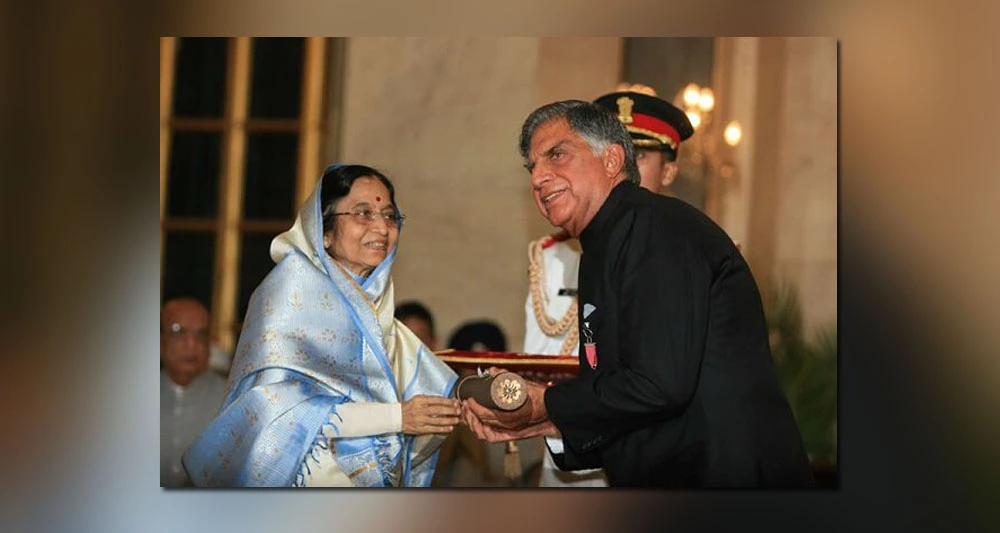
Recognition for leadership and contributions to industry
Both domestically and abroad, Ratan Tata’s industry leadership and contributions have received widespread acclaim. Throughout his career, he has won a great deal of recognition, including several major prizes for commercial leadership.
Ratan Tata received the Padma Vibhushan, the second-highest civilian honour in India, in 2008 for his services to the business and industrial sectors. Additionally, he has won other international honours, such as the Grand Cross of the Order of Merit of the Federal Republic of Germany in 2013, the Ernst & Young Entrepreneur of the Year Award in 2004, and the Carnegie Medal of Philanthropy in 2007.
Ratan Tata has also received recognition for his leadership in the Indian business in addition to these honours. He received the Federation of Indian Chambers of Commerce and Industry’s Businessman of the Decade award in 2010 for his achievements. Additionally, he has been on numerous lists of the most powerful and important business figures in the world, including Fortune’s 2014 list of the World’s 50 Greatest Leaders.
Ratan Tata’s history as a visionary leader who built the Tata Group into a global conglomerate and made significant contributions to the Indian economy is reflected in his accolades for his contributions to the industry and leadership. Many people have been inspired by his creative and socially responsible business strategy, and he has provided an example for upcoming generations of business executives.
Awards for philanthropy and social work
Throughout his career, Ratan Tata has received widespread praise for his charity and social services. For his services to humanitarian concerns both in India and abroad, he has won numerous accolades and prizes.
Ratan Tata received the Knight Grand Cross of the Order of the British Empire (GBE) in 2019 for his philanthropic efforts and efforts to advance UK-India ties. His charitable activity has also earned him numerous other international honours, such as the 2007 Carnegie Medal of charity, which honours people who have made noteworthy contributions to charity.
In addition to these accolades from abroad, Ratan Tata has also won numerous honours for his charitable work in India. He has received both the Padma Vibhushan, India’s second-highest civilian award, and the Padma Bhushan, one of the country’s highest civilian accolades, for his contributions to philanthropy and trade.
Additionally honoured for his contributions to India’s healthcare and education systems is Ratan Tata. He received the Distinguished Alumnus Award in 2015 from the Indian Institute of Technology, Bombay, in recognition of his contributions to Indian education. For his contributions to healthcare, he has also won numerous honours, including the Ernst & Young Entrepreneur of the Year Award in the category of Healthcare and Life Sciences in 2012.
Ratan Tata’s Business Philosophy
Principles and values guiding his leadership
Ratan Tata’s leadership has been influenced by a set of beliefs and ideals that have moulded his perspective on philanthropy and business. His dedication to innovation, moral leadership, and social responsibility is reflected in these beliefs and values.
Ratan Tata’s commitment to social responsibility has been one of the guiding themes of his leadership. He has frequently emphasised the value of giving back to society and the use of business to address issues related to social and environmental issues. The Tata Group’s philanthropic endeavours and emphasis on sustainability and social effect are a reflection of this principle.
Ratan Tata’s dedication to innovation has served as another crucial principle that has guided his leadership. As a result of his emphasis on taking chances and embracing novel concepts, the Tata Group has been able to stay competitive and adjust to shifting market conditions. The group’s investments in R&D and attention to emerging technologies and markets both demonstrate its dedication to innovation.
A strong commitment to ethical leadership has also served as a direction for Ratan Tata’s leadership. He has tried to create a culture of trust and responsibility inside the Tata Group and has emphasised the need of honesty and transparency in business. The group’s corporate governance practises and emphasis on social and environmental responsibility are evidence of its dedication to moral leadership.
Approach to innovation and growth
Ratan Tata is renowned for his creative business methods and commitment to expansion and success. He has adopted a strategy of investing in developing technologies and markets while simultaneously highlighting the significance of sustainability and social responsibility throughout his tenure as the head of the Tata Group.
By promoting a culture of experimentation and risk-taking, Ratan Tata has promoted innovation within the Tata Group in a number of significant ways. The firm has been able to keep ahead of the curve in terms of new trends and technology because of his emphasis on the value of attempting new things and taking prudent risks.
Ratan Tata has followed a strategy of growth and expansion through acquisitions and partnerships in addition to encouraging innovation within the firm. Under his direction, the Tata Group has completed a number of high-profile acquisitions, such as the 2007 purchase of British steelmaker Corus and the 2008 purchases of Jaguar and Land Rover, two British luxury automakers. These acquisitions have aided the group’s portfolio diversification and market expansion.
Ratan Tata’s strategy for development and innovation, though, has also been influenced by a strong commitment to social responsibility and sustainability. In addition to pursuing a strategy of investing in sustainable technology and business models, he has emphasised the significance of utilising business as a tool to address social and environmental concerns.
Personal Life
Family and relationships
Little is known about Ratan Tata’s family and connections because he has a reputation for being a secretive guy. He was married to Sylvia, a British woman, but they divorced after their separation in the 1970s. There were no kids born to them.
Noel Tata, Ratan Tata’s half-brother and another important player in the Tata Group, has a reputation for being close. According to reports, the two brothers collaborated extensively on a number of commercial projects, and Noel Tata has been considered a possible successor to Ratan Tata as the group’s chairman.
Ratan Tata is well renowned for his close friendships with a number of important people in business and politics outside of his immediate family. Former British Prime Minister Tony Blair counts him as a close buddy, and he has also been seen hanging out with Warren Buffett and Bill Gates.
Hobbies and interests
Outside of his employment with the Tata Group, Ratan Tata is known to have a wide range of interests and pastimes. He reportedly has a fascination for cars and is an obsessive collector of classic and high-end vehicles. He has also been known to participate in motorsport activities, even the arduous Dakar Rally.
Ratan Tata is well renowned for his love of animals in addition to his interest in automobiles. He has been a strong supporter of animal welfare and has been actively involved in various conservation efforts to save endangered species like tigers and leopards.
Aviation is another one of Ratan Tata’s hobbies, and he has taken part in a number of projects to support the expansion and development of India’s aviation industry. He played a key role in the founding of India’s first privately owned airline and has been a fervent supporter of the construction of regional airports all over the nation.
Challenges Faced by Ratan Tata
Criticisms and controversies
Ratan Tata has faced criticism and controversies while being generally recognised as a visionary leader and receiving multiple awards for his services to business and philanthropy.
In 2006, the Tata Group came under fire for its role in the creation of the Tata Nano, a low-cost vehicle aimed at the Indian market. This controversy ranks among Ratan Tata’s most prominent ones. The manufacturing of such a cheap car, according to critics, might increase traffic and pollution on Indian roads while simultaneously lowering safety standards. Despite these reservations, the Tata Nano was eventually made public in 2009, however it was not as successful as anticipated.
The Tata Group and Ratan Tata have also come under fire for not doing enough to address the problem of labour rights in their plants. The group has been charged with engaging in various unethical labour practises as well as failing to appropriately address the problem of underage labour. The Tata Group has come under fire for these remarks, which have prompted calls for greater accountability and openness on their behalf.
Despite these issues, Ratan Tata has mostly left a favourable legacy and is still widely regarded as a visionary leader who has made important contributions to business and philanthropy.
Handling difficult situations
Ratan Tata has shown a talent for managing challenging circumstances with poise and tenacity throughout his career. One noteworthy instance was the Taj Mahal Palace hotel, which is owned by the Tata Group, being attacked by terrorists in the wake of the 2008 terrorist attacks in Mumbai. Ratan Tata personally managed the evacuation of guests and staff after the incident by going to the hotel. In addition, he promised to reconstruct the hotel as a testament to India’s fortitude and resolve in the face of difficulty.
The creation of the Tata Nano is another instance of Ratan Tata’s ability to handle challenging circumstances. Ratan Tata persisted in his commitment to the project in the face of multiple setbacks and critiques, and he kept working to allay the issues that had been brought up. The Tata Nano was eventually made available to the general public, albeit it was not as successful as anticipated.
Ratan Tata displayed his capacity to stay focused and resolute in the face of difficulty in each of these circumstances. Additionally, he demonstrated a willingness to accept accountability for challenging circumstances and to collaborate with others to develop answers. He is now regarded as one of India’s most admirable and revered leaders thanks to these traits.
Legacy and Impact
Impact on the Tata Group
The Tata Group has been significantly impacted by Ratan Tata, and under his guidance, the organisation has grown to become one of the biggest and most prosperous conglomerates in India. The Tata Group has grown significantly under his leadership, entering a variety of markets, including the automobile, steel, telecommunications, hospitality, and more.
Ratan Tata’s emphasis on innovation and expansion has been one of his most significant contributions to the Tata Group. He has dedicated his career to developing fresh, creative approaches to growing the business’ operations and boosting its profitability. This has required taking calculated risks, chasing fresh markets and commercial chances, and spending money on R&D.
The Tata Group has been impacted by Ratan Tata’s emphasis on civic engagement and charity. He has made it a priority to use the Tata Group’s resources to tackle some of India’s most urgent social and economic problems throughout his career. Initiatives in the fields of education, healthcare, and rural development have been involved in this.
Influence on the Indian economy
One cannot exaggerate Ratan Tata’s impact on the Indian economy. He has played a significant role in reshaping India’s economic environment throughout the years as one of the country’s most well-known corporate executives. The Tata Group has developed into a significant player in a variety of industries under his direction, including the automotive, steel, telecommunications, hotels, and more.
Ratan Tata has aided in job creation, economic growth, and development in India by placing a strong emphasis on innovation, growth, and social responsibility. Recognising the significance of innovation in fostering economic advancement, he has also been a staunch supporter of spending money on research and development.
Ratan Tata has made contributions to the corporate world as well as being a strong supporter of economic and social reform in India. He has worked to address some of the nation’s most serious social and economic issues, including as poverty, healthcare, education, and rural development, through his philanthropic endeavours and advocacy work.
Global recognition
Ratan Tata has gained international acclaim and respect for his business acumen and leadership. Numerous lists of the “most powerful” and “most influential” individuals have included him, including the list of the 100 most important persons in the world published by Time magazine. The Padma Bhushan and Padma Vibhushan, two of India’s highest civilian honours, are among the numerous important accolades that he has received.
Along with his commercial successes, Ratan Tata is also known internationally for his humanitarian efforts and advocacy. He has been honoured for his contributions in fields like education, healthcare, and rural development as well as for his efforts to further social and economic growth in India.
Lessons from Ratan Tata’s Leadership
Leadership principles to learn from
Ratan Tata’s leadership principles have been studied and admired by many. Here are some key principles that leaders can learn from his approach:
1. Put your attention on long-term objectives: Ratan Tata has emphasised the significance of planning and thinking long-term rather than only focusing on short-term advantages.
2. Accept change: Tata has always been adaptable, and he has promoted experimentation and innovation inside his organisations.
3. Set high standards: Tata is renowned for setting high standards for himself and his staff and setting an excellent example with his work ethic, moral character, and dedication to perfection.
4. Invest in people: Tata has emphasised the need of doing so and developing an environment at work that fosters learning and development.
5. Be socially conscious: Tata has been a major proponent of ethical business practises and social responsibility, and he has worked to improve society through his charity and corporate efforts.
6. Remain humble: Despite his success and widespread acclaim, Tata has stayed grounded and humble, and he has consistently looked to learn from others.
Insights for aspiring leaders
Here are some insights for aspiring leaders based on Ratan Tata’s career:
1. Follow your passion: Ratan Tata chose to work in the automobile sector because he has a passion for both engineering and autos. Leaders in training should discover their passions and match their jobs to them.
2. Be adaptable: One of the secrets to Tata’s success has been his ability to accept new technology and adjust to shifting market conditions. Future leaders should be adaptable and open to change.
3. Lead with integrity: Tata’s unwavering moral principles and dedication to social responsibility have won him the affection and esteem of people all around the world. Integrity and ethical conduct should be given priority by aspiring leaders in all their interactions.
4. Keep learning: Tata’s passion for education and pursuit of perfection has guided him throughout his career. Future leaders should adopt a growth mentality and continuously work to improve their knowledge and abilities.
Final thoughts on his leadership and impact
The Tata Group, the Indian economy, and society as a whole have all greatly benefited from Ratan Tata’s leadership. He has transformed the Tata Group into a multinational company with a strong emphasis on innovation, sustainability, and social responsibility through his vision, values, and strategic leadership.
Tata’s integrity, devotion to perfection, and humility define his leadership style. People all over the world have come to trust and respect him because he has always placed the interests of the company and its stakeholders over his own personal gain.
His charitable activities and support for social concerns have further solidified his standing as a leader who genuinely cares about the well-being of others. Millions of people’s lives have been impacted by his tremendous contributions to rural development, healthcare, and education through the Tata Trusts.


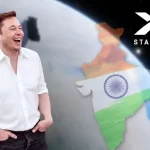
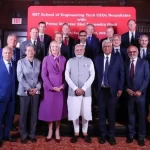
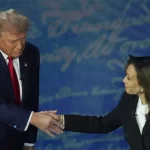

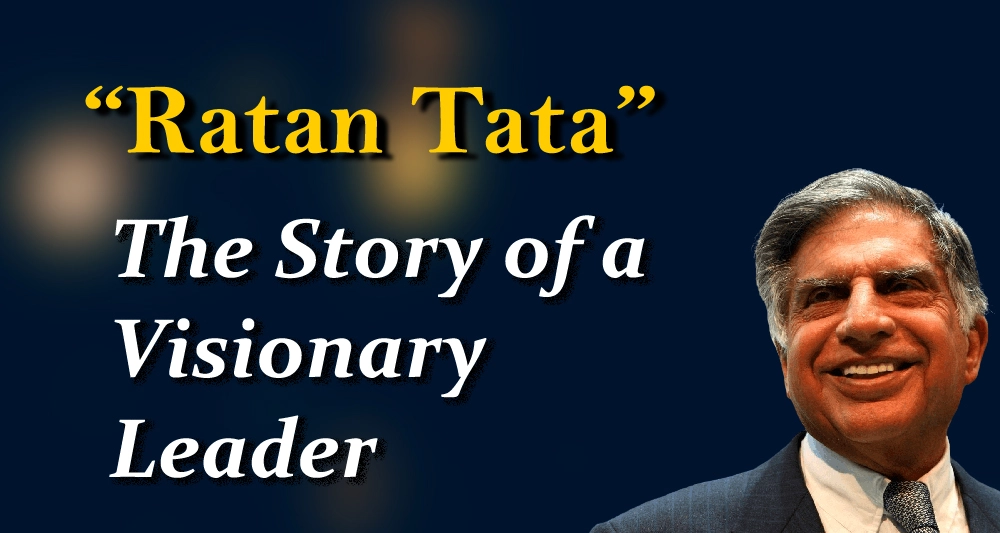




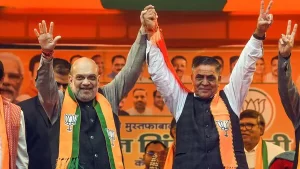


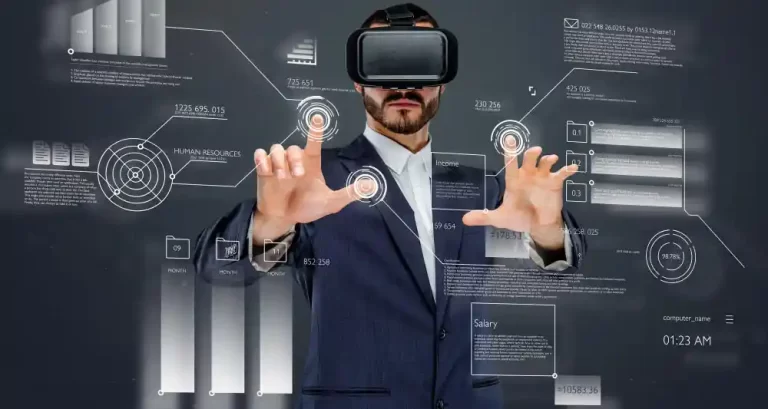
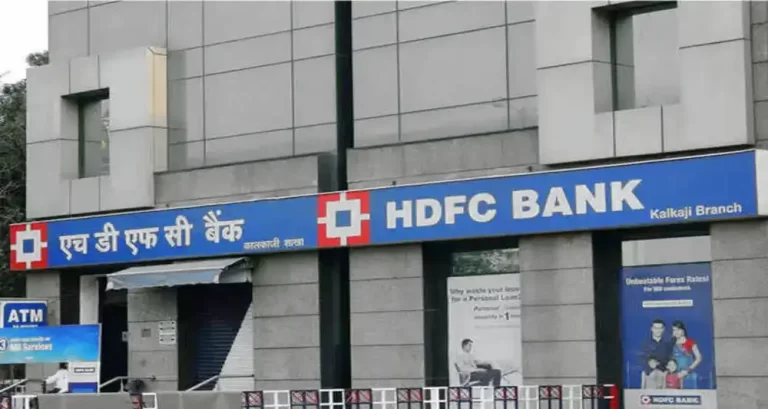
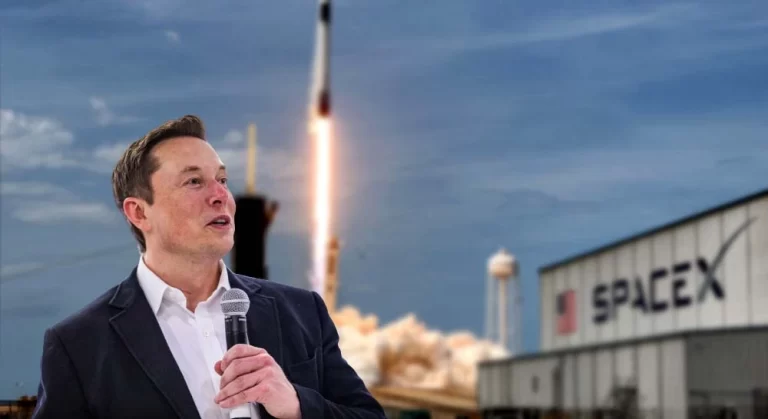
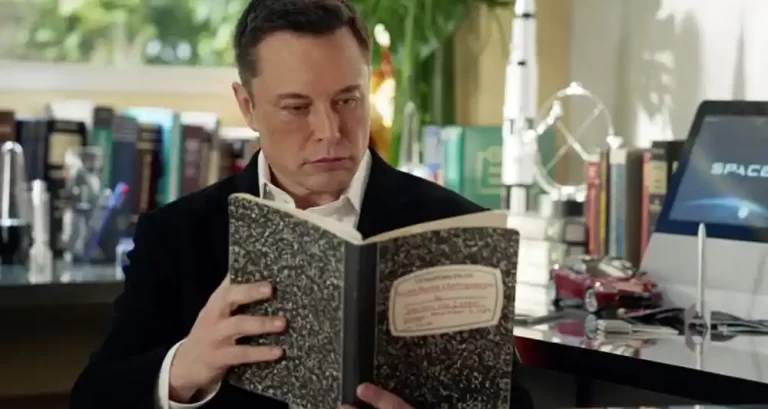





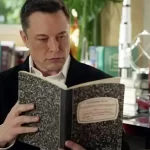

Wonderful blog you have here but I wass cujrious about if you
knew of any commuunity foruums that cover the same topics discussed in this article?
I’d really love to be a part of group where I can get opinions from other experienced
people that share the same interest. If you
have any suggestions, please let me know. Blrss you!
I’m not sure where you are getting your info, but good topic. I needs to spend some time learning more or understanding more. Thanks for fantastic information I was looking for this information for my mission.